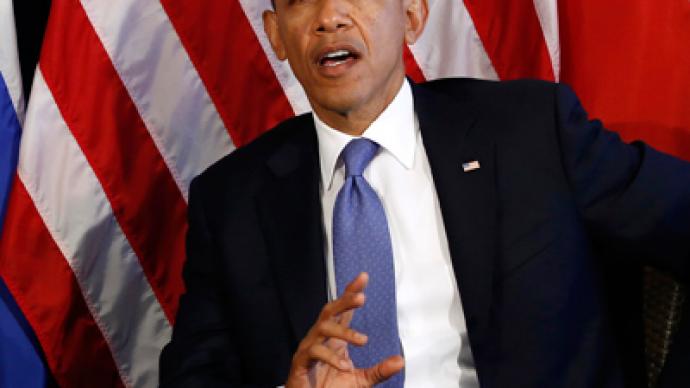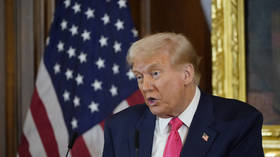CISPA sponsor says Obama will sign cybersecurity bill

The White House has gone on the record to say that US President Barack Obama will veto the controversial cybersecurity bill known as CISPA, but the author of the act has his doubts that the commander-in-chief will keep that promise.
Congressman Mike Rogers (R-Michigan), one of two US Representatives responsible for introducing the heated Cyber Intelligence Security Protection Act to Congress, has opened up once more on the subject of CISPA. According to the lawmaker — who also sits as chairman of the House Permanent Select Committee on Intelligence — President Obama is likely to loosen his stance on the cybersecurity bill and sign it into law if given the change.“[I]f we can get a bill on information-sharing to the president’s desk, he’ll sign it. I do believe that,” Rep. Rogers said this week during a panel discussion on the bill, reports Daily Dot. Since being introduced earlier this year, CISPA has attracted criticism from across the country thanks to activists rallying against the attempt to involve Washington in the inner workings of the Web. If passed, the government would be given the go-ahead to peer into personal information stored online by Internet users and would be invited to put their eyes on sensitive data provided to third-party companies and other private sector corporations that operate on the Web — all while excusing those businesses from any liability — under the guise of national security.The legislation has already cleared the US House of Representatives and is awaiting a vote in the Senate. As lawmakers on that side of the aisle prepare to ponder the bill, however, Rep. Rogers says he’s confident that, once the “dust settles,” Obama will authorize the act.Earlier this year, the White House responded to the attention CISPA was accumulating by releasing a statement expressing the administration's attitude against the bill.“The sharing of information must be conducted in a manner that preserves Americans' privacy, data confidentiality and civil liberties and recognizes the civilian nature of cyberspace,” the memo reads. “Cybersecurity and privacy are not mutually exclusive. Moreover, information sharing, while an essential component of comprehensive legislation, is not alone enough to protect the nation's core critical infrastructure from cyber threats. Accordingly, the administration strongly opposes H.R. 3523, the Cyber Intelligence Sharing and Protection Act, in its current form.”Comparisons have been made, of course, with another controversial legislation authorized by Obama in recent months that was done after a similar statement was offered to the public. Last year the administration insisted that the president would veto the National Defense Authorization Act for Fiscal Year 2012, but Obama eventually inked his name to the bill on December 31, providing a signing statement acknowledging that he had reservations about the legislation. Nonetheless, the attention-grabbing provisions of the NDAA that include rules about indefinitely detaining American citizens were included in the final bill, despite the president’s alleged opposition. Several state have since considered legislation on their own that would free them from complying with those federal provisions.Last month, Howard A. Schmidt, a leading White House official who publically condemned CISPA on behalf of the administration, suddenly stepped down as Obama’s cybersecurity coordinator. In turn, skeptics were quick to suggest that the president may in the future be less persistent in the White House’s fight against CISPA than it had been with Schmidt on board. That is not to say, however, that CISPA will be inevitably authorized. It has garnered the attention of several leading lawmakers in Washington who are opposed to the bill, including Rep. Ron Paul (R-Texas) and Sen. Ron Wyden (D-Oregon). Last month Sen. Wyden told members of Congress that passing CISPA would create “a Cyber Industrial Complex” that would allow the federal government and its Big Business cohorts to profit off of the personal info of any American with an Internet connection.















